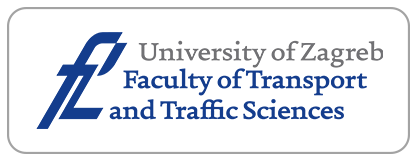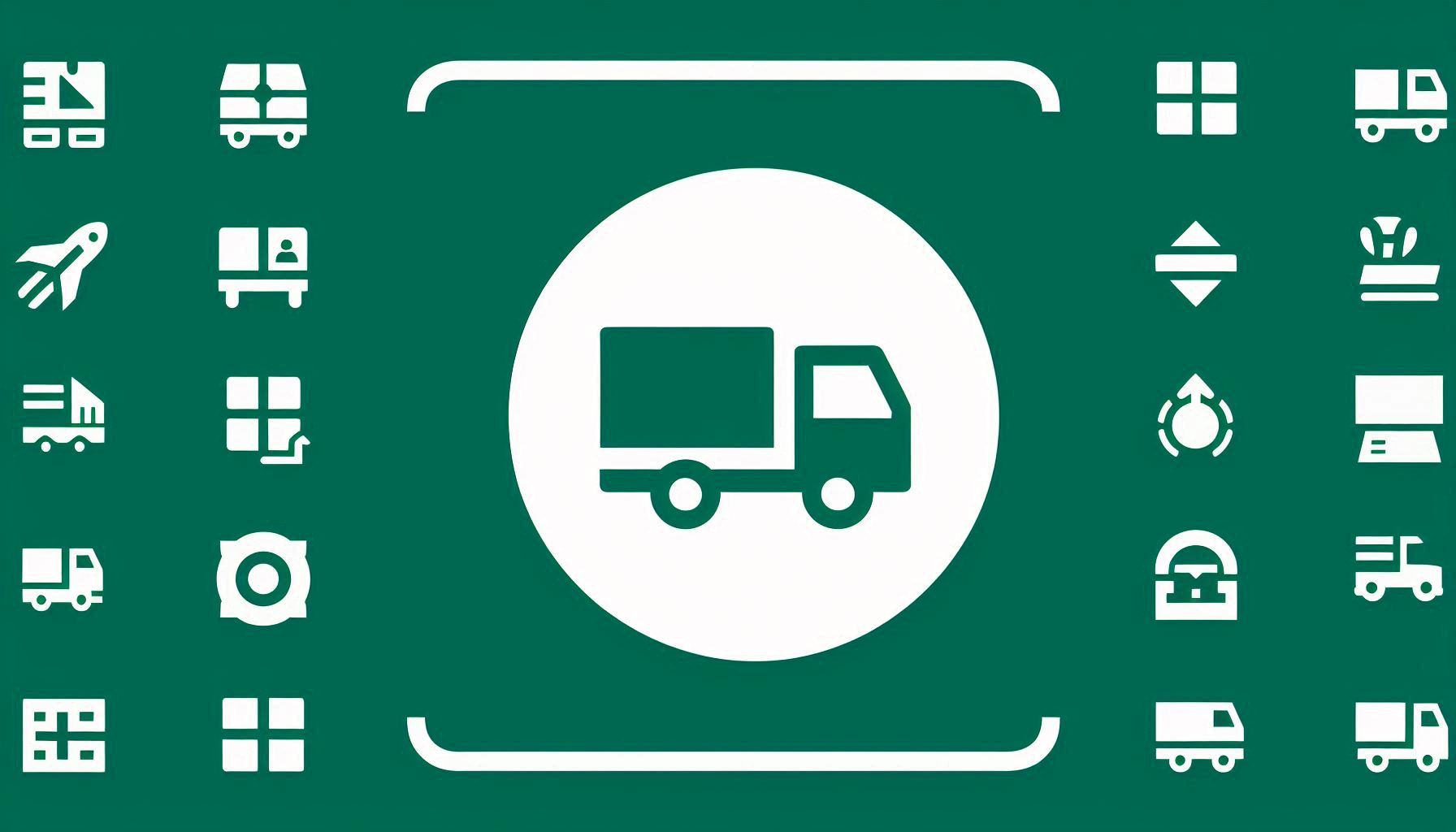Two-Echelon Location-Routing Problem with Fuzzy Demand of Rural E-Commerce Logistics

Downloads
To promote the green and high-quality development of rural e-commerce logistics, we propose the Two-Echelon Location-Routing Problem with Fuzzy Demand (2E-LRP-FD) of the rural e-commerce logistics network. Considering fuzzy demand, government subsidies and simultaneous delivery, the objective function aims to maximise the profit of enterprises considering government subsidies. The fuzzy chance-constrained programming method is used to deal with the triangular fuzzy variables of pickup demands. Additionally, we present a two-stage Improved Non-Dominated Sorting Genetic Algorithm II (INSGA-II) that integrates stochastic simulation and a K-means clustering algorithm to effectively solve the problem. In the end, the numerical experiments of algorithm and model design are verified. The experimental results demonstrate that the proposed INSGA-II is significantly efficient and effective. Furthermore, we discuss the relationship between subsidy strategies and logistics enterprise profits. This research contributes valuable insights for the establishment of rural e-commerce logistics systems.
Downloads
Ministry of Commerce of the People's Republic of China, China E-commerce Report 2021. Beijing: 2022.
Novotná M, Gottwald D. Current challenges for the postal services sector in the context of E-commerce – Predictive analysis of V4 States. Promet - Traffic and Transportation. 2021;33(6):919-930. DOI: 10.7307/ptt.v33i6.3927.
Kshetri N. Rural e-commerce in developing countries. IT Professional. 2018;20(2):91-95. DOI: 10.1109/MITP.2018.021921657.
Liu Z, et al. A measurement model and empirical analysis of the coordinated development of rural e-commerce logistics and aagricultural modernization. Sustainability. 2022;14(21): 13758. DOI: 10.3390/su142113758.
Markowska M, Marcinkowski J. Rural e-customers' preferences for last mile delivery: Evidence from Poland. Energies. 2022;15(22): 8351. DOI: 10.3390/en15228351.
Seghezzi A, Siragusa C, Mangiaracina R. Parcel lockers vs. home delivery: a model to compare last-mile delivery cost in urban and rural areas. International Journal of Physical Distribution & Logistics Management. 2022;52(3):213-237. DOI: 10.1108/IJPDLM-03-2020-0072.
Liu W. Route optimization for last-mile distribution of rural e-commerce logistics based on ant colony optimization. IEEE Access. 2020;8:12179-12187. DOI: 10.1109/ACCESS.2020.2964328.
Yang F, Dai Y, Ma ZJ. A cooperative rich vehicle routing problem in the last-mile logistics industry in rural areas. Transportation Research Part E: Logistics and Transportation Review. 2020;141: 102024. DOI: 10.1016/j.tre.2020.102024.
Watson-Gandy C, Dohrn P. Depot location with van salesmen - A practical approach. Omega. 1973;1(3):321-329. DOI: 10.1016/0305-0483(73)90108-4.
Salhi S, Rand GK. The effect of ignoring routes when locating depots. European Journal of Operational Research. 1989;39(2):150-156. DOI: 10.1016/0377-2217(89)90188-4.
Prodhon C, Prins C. A survey of recent research on location-routing problems. European Journal of Operational Research. 2014;238(1):1-17. DOI: 10.1016/j.ejor.2014.01.005.
Jacobsen SK, Madsen OBG. A comparative study of heuristics for a two-level routing-location problem. European Journal of Operational Research. 1980;5(6):378-387. DOI:10.1016/0377-2217(80)90124-1.
Wang Y, et al. Two-echelon multi-depot multi-period location-routing problem with pickup and delivery. Computers & Industrial Engineering. 2023;182:109385. DOI: 10.1016/j.cie.2023.109385.
Tian XD, Hu ZH. A branch-and-price method for a two-echelon location routing problem with recommended satellites. Computers & Industrial Engineering. 2023;184:109593. DOI: 10.1016/j.cie.2023.109593.
Yıldız EA, Altiparmak F, Karaoğlan I. An exact algorithm for two-echelon location-routing problem with simultaneous pickup and delivery. Expert Systems with Applications. 2023;231:120598. DOI: 10.1016/j.eswa.2023.120598.
Zadeh LA. Fuzzy sets. Information and Control, 1965;8(3):338-353. DOI: 10.1016/S0019-9958(65)90241-X.
Kaufmann A . Introduction to the theory of fuzzy subsets. Academic Press; 1975. Accessed December 18, 2023. https://research.ebsco.com/linkprocessor/plink?id=6bda5edb-19b8-3bd4-a6a9-1d96e96098a7.
Liu L, Gao X. Fuzzy weighted equilibrium multi-job assignment problem and genetic algorithm. Applied Mathematical Modelling. 2009;33(10):3926-3935. DOI: 10.1016/j.apm.2009.01.014.
Zarandi MHF, Hemmati A, Davari S. The multi-depot capacitated location-routing problem with fuzzy travel times. Expert Systems with Applications. 2011; 38(8):10075-10084. DOI: 10.1016/j.eswa.2011.02.006.
Wei M, Yu L, Li X. Credibilistic location-routing model for hazardous materials transportation. International Journal of Intelligent Systems. 2015;30(1):23-39. DOI: 10.1002/int.21679.
Ghezavati V, Morakabatchian S. Application of a fuzzy service level constraint for solving a multi-objective location-routing problem for the industrial hazardous wastes. Journal of Intelligent and Fuzzy Systems. 2015;28(5):2003-2013. DOI: 10.3233/IFS-141341.
Nadizadeh A, Kafash B. Fuzzy capacitated location-routing problem with simultaneous pickup and delivery demands. Transportation Letters. 2019;11(1):1-19. DOI: 10.1080/19427867.2016.1270798.
Zhang H, et al. A hybrid heuristic based on a particle swarm algorithm to solve the capacitated location-routing problem with fuzzy demands. IEEE Access. 2020; 8:153671-153691. DOI:10.1109/ACCESS.2020.3018490.
Tirkolaee EB, Abbasian P, Weber GW. Sustainable fuzzy multi-trip location-routing problem for medical waste management during the COVID-19 outbreak. Science of the Total Environment. 2021;756:143607. DOI: 10.1016/j.scitotenv.2020.143607.
Li N, Fan Z. A hybrid algorithm for location-routing sustainable optimization under fuzzy demand. IEEE Access. 2022;10:12191-12200. DOI: 10.1109/ACCESS.2022.3145157.
Fazayeli S, Eydi A, Kamalabadi IN. Location-routing problem in multimodal transportation network with time windows and fuzzy demands: Presenting a two-part genetic algorithm. Computers & Industrial Engineering. 2018;119:233-246. DOI: 10.1016/j.cie.2018.03.041.
Tonči C, Juraj F. Using congestion zones for solving the time dependent vehicle routing problem. Promet - Traffic and Transportation. 2020;32(1):25-38. DOI: 10.7307/ptt.v32i1.3296.
Wu Y, Qureshi AG, Yamada T. Adaptive large neighborhood decomposition search algorithm for multi-allocation hub location routing problem. European Journal of Operational Research. 2022;302(3):1113-1127. DOI: 10.1016/j.ejor.2022.02.002.
Lv C, et al. A fuzzy correlation based heuristic for dual-mode integrated location routing problem. Computers & Operations Research. 2022;146:105923. DOI: 10.1016/j.cor.2022.105923.
Yang S, et al. Integrated electric logistics vehicle recharging station location–routing problem with mixed backhauls and recharging strategies. Transportation Research Part C: Emerging Technologies. 2022;140:103695. DOI: 10.1016/j.trc.2022.103695.
Herrera-Cobo JS, Escobar JW, Álvarez-Martínez D. Metaheuristic algorithm for the location, routing and packing problem in the collection of recyclable waste. International Journal of Industrial Engineering Computations. 2023;14(1):157-172. DOI: 10.5267/j.ijiec.2022.8.004.
Cordeau JF, Laporte G, Mercier A. A unified tabu search heuristic for vehicle routing problems with time windows. Journal of the Operational Research Society. 2001;52(8):928-936. DOI: 10.1057/palgrave.jors.2601163.
Nguyen VP, Prins C, Prodhon C. A multi-start evolutionary local search for the two-echelon location routing Problem. Lecture Notes in Computer Science. 2010;(6373):88-102. DOI: 10.1007/978-3-642-16054-7_7.
Nguyen VP, Prins C, Prodhon C. GRASP with learning process for a two-echelon location-routing problem. Proceedings of the 8th Conference on Modeling and Simulation. 2010.
Nguyen VP, Prins C, Prodhon C. A multi-start iterated local search with tabu list and path relinking for the two-echelon location-routing problem. Engineering Applications of Artificial Intelligence. 2012; 25(1):56-71.DOI: 10.1016/j.engappai.2011.09.012.
Copyright (c) 2025 Xiaojuan LU, Jianjun WANG, Shuai WU, Shiyu ZHENG, Qian LIU

This work is licensed under a Creative Commons Attribution-NonCommercial 4.0 International License.




















